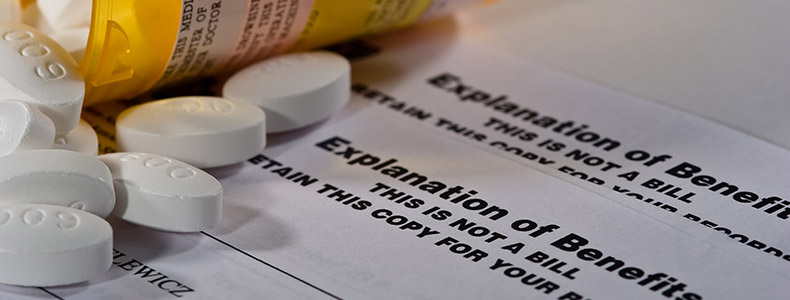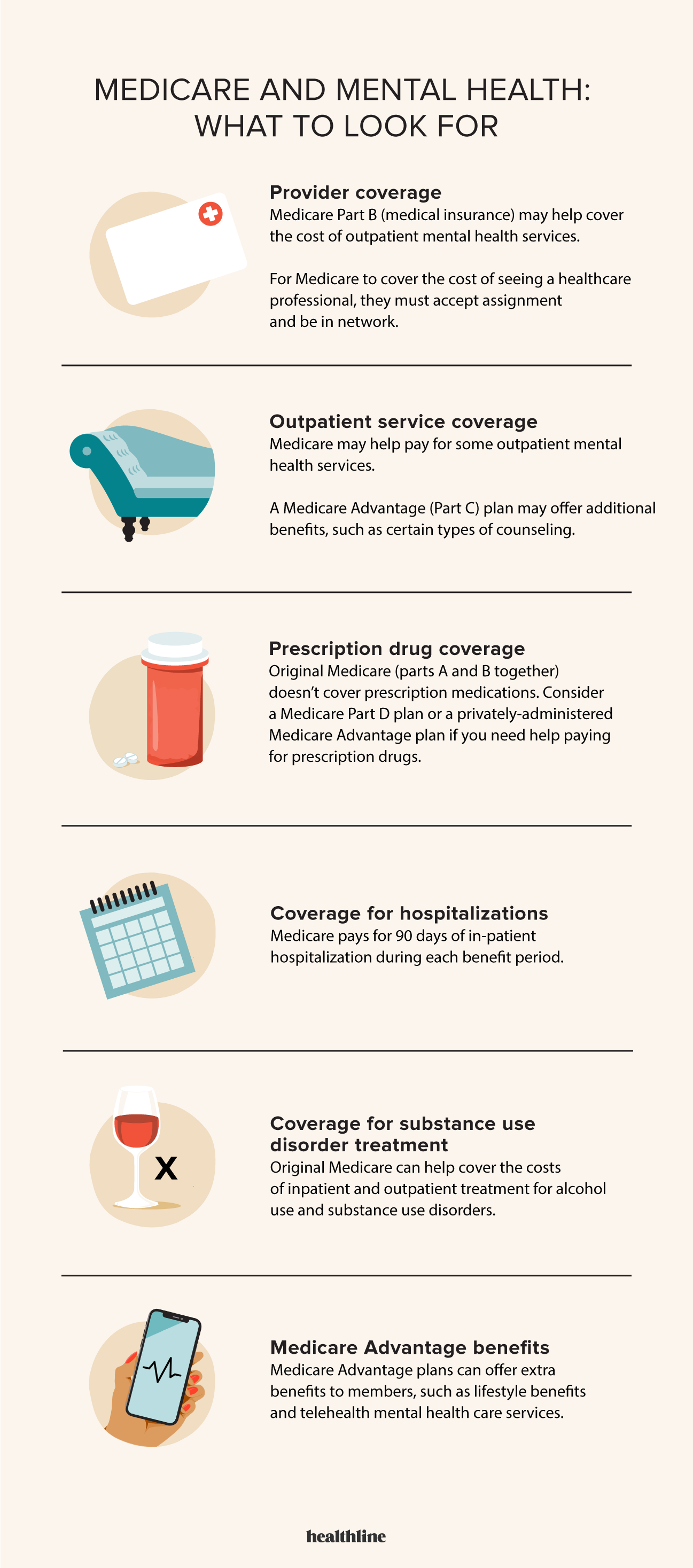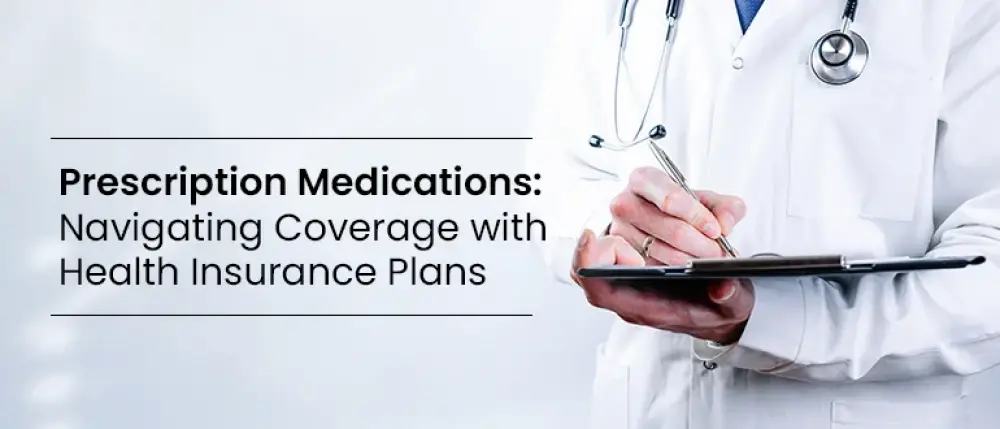Yes, health insurance often covers prescription medications. Coverage varies based on the insurance plan and formulary.
Health insurance plays a crucial role in managing healthcare costs. Prescription medications can be expensive, and having insurance can significantly reduce these expenses. Most health insurance plans include a formulary, a list of covered drugs. This list can vary widely between plans.
It’s essential to review your plan’s formulary to understand which medications are covered and any associated costs, such as copayments or deductibles. Some plans may require prior authorization for certain medications. Always check with your insurance provider to confirm coverage details, ensuring you avoid unexpected costs and obtain necessary medications.

Credit: www.nilife.com
Introduction To Health Insurance And Medications
Health insurance is crucial for managing healthcare costs. Many people rely on it. But does it cover prescription medications? Understanding this can help you plan better.
Basics Of Health Insurance
Health insurance helps pay for medical expenses. It covers doctor visits, hospital stays, and surgeries. Insurance plans can be private or government-provided.
Premiums are the payments you make for your insurance plan. You pay these monthly or yearly. Deductibles are the amount you pay before insurance starts to pay. Co-payments and co-insurance are your share of the cost after the deductible.
Role Of Prescription Medications
Prescription medications treat various health conditions. They can prevent diseases and improve quality of life. Sometimes, medications are essential for survival.
Insurance plans often cover these medications. But the extent of coverage varies. Some plans cover all costs, while others cover part of it. Formulary lists detail which medications are covered.
You may need to pay a co-payment for each prescription. This can vary based on the medication type. Generic drugs usually cost less than brand-name drugs.
| Term | Meaning |
|---|---|
| Premium | Monthly or yearly payment for the insurance plan |
| Deductible | Amount you pay before insurance kicks in |
| Co-payment | Your share of the cost for a service or drug |
| Formulary | List of medications covered by the insurance |
Types Of Health Insurance Plans
Health insurance plans can be confusing, especially when it comes to prescription medications. There are several types of health insurance plans, each with its own rules and coverage details. Understanding these can help you know if your medications are covered.
Employer-sponsored Plans
Many people get health insurance through their jobs. These are called employer-sponsored plans. Employers often pay part of the premium. These plans usually cover some prescription medications. It’s important to check your plan’s formulary. The formulary is a list of covered medications. Some plans may require you to use generic drugs. Others may have higher copays for brand-name drugs.
Individual And Family Plans
Individual and family plans are bought directly from insurance companies or through the Health Insurance Marketplace. These plans also cover prescription medications. Coverage details can vary widely. Some plans have higher deductibles. Others offer more comprehensive drug coverage. Always read the plan documents carefully. Look for the formulary to see which drugs are covered. Also, check if your preferred pharmacy is in-network.
Prescription Medication Coverage
Prescription medication coverage is a critical part of health insurance. It helps reduce the cost of drugs. Understanding the details can save you money and stress. This section explains how prescription coverage works.
Formulary Lists
A formulary list is a list of medications covered by your insurance plan. These lists are created by the insurance company. They decide which drugs are most effective and cost-efficient.
Formulary lists are divided into categories:
- Generic Drugs: These are the least expensive. They have the same ingredients as brand-name drugs.
- Preferred Brand-Name Drugs: These are brand-name drugs that are favored by the plan. They are more expensive than generic drugs.
- Non-Preferred Brand-Name Drugs: These are the most expensive. They are not favored by the plan.
Check your plan’s formulary list before filling a prescription. It helps you know the cost and coverage.
Tiered Drug Plans
Tiered drug plans categorize drugs into different levels or tiers. Each tier has a different cost. This helps manage the expenses for both the insurer and the patient.
The common tiers are:
| Tier | Description | Cost |
|---|---|---|
| Tier 1 | Generic Drugs | Lowest Cost |
| Tier 2 | Preferred Brand-Name Drugs | Moderate Cost |
| Tier 3 | Non-Preferred Brand-Name Drugs | Highest Cost |
| Tier 4 | Specialty Drugs | Very High Cost |
Understanding the tier system can help you choose affordable medications. Always consult your plan for the specific details.

Credit: www.healthline.com
Factors Affecting Coverage
Understanding if health insurance covers prescription medications can be complex. Different factors impact coverage. Knowing these factors helps you manage your healthcare costs better.
Generic Vs. Brand Name Drugs
Insurance often favors generic drugs. Generic drugs cost less and work the same as brand name drugs. This makes them a preferred choice.
Brand name drugs are usually more expensive. Insurance plans may cover them, but you might pay more out-of-pocket. Check your insurance plan to see the coverage for both types.
Prior Authorization
Some medications need prior authorization. This means your doctor must get approval from the insurance company before you get the medicine. This process ensures the drug is necessary and cost-effective.
Without prior authorization, the insurance may not cover the medication. Always confirm if your prescription needs this approval.
How To Check Your Coverage
Understanding if your health insurance covers prescription medications is crucial. Knowing how to check your coverage can save you time and money. This section will guide you through the necessary steps.
Reviewing Your Policy
The first step is to review your policy. Check your insurance documents. Look for sections that mention prescription drugs. Policies often have a list of covered medications. This list is called a formulary. It shows which drugs are covered and under which tier.
Use the table below to understand typical formulary tiers:
| Tier | Type of Medication | Cost |
|---|---|---|
| Tier 1 | Generic Drugs | Lowest Cost |
| Tier 2 | Preferred Brand Drugs | Moderate Cost |
| Tier 3 | Non-Preferred Brand Drugs | Higher Cost |
| Tier 4 | Specialty Drugs | Highest Cost |
Contacting Your Insurer
If your policy is unclear, contact your insurer. They have customer service teams to help. Use the phone number on your insurance card. When you call, ask about prescription coverage. Here are some specific questions to ask:
- Are my medications covered?
- What tier are they in?
- What will my copay be?
- Are there any restrictions?
Document their answers. This will help you understand your coverage better.
Tips For Managing Prescription Costs
Prescription costs can strain your budget. Knowing how to manage these costs helps. Below are practical tips to reduce your prescription expenses.
Using Discount Programs
Discount programs can save you money on medications. Many pharmacies offer these programs. You can sign up for free or a small fee. They provide discounts on many medications.
There are also online platforms. Websites like GoodRx and RxSaver can find the best prices. They compare costs at different pharmacies. This helps you find the lowest price for your prescription.
| Discount Program | Benefits |
|---|---|
| GoodRx | Compare prices, get coupons |
| RxSaver | Find discounts, save on refills |
Also, check if your insurance offers a discount program. Some insurance plans have partnerships with certain pharmacies. This can lead to additional savings.
Exploring Alternative Medications
Generic medications often cost less than brand-name drugs. Ask your doctor if a generic is available. Generics have the same active ingredients and work the same way.
Another option is therapeutic alternatives. These are different drugs that treat the same condition. They may not be the same chemical but work similarly. Ask your doctor about these alternatives.
- Generic drugs are cheaper.
- Therapeutic alternatives may cost less.
- Ask your doctor for options.
Sometimes, changing the dosage can help. Higher doses may be split into smaller ones. Always consult with your healthcare provider before making changes. This ensures safety and effectiveness.

Credit: www.careinsurance.com
Frequently Asked Questions
Does Health Insurance Cover All Prescriptions?
Most health insurance plans cover many, but not all, prescription medications. Coverage depends on the specific plan.
How Can I Check Prescription Coverage?
Review your health insurance policy or contact your insurer directly to confirm which medications are covered.
Are Generic Drugs Covered By Insurance?
Yes, generic drugs are typically covered by health insurance as they are more cost-effective than brand-name medications.
Do I Need Prior Authorization For Prescriptions?
Some medications may require prior authorization from your insurance provider to ensure they are medically necessary.
Can I Use Insurance For Online Pharmacies?
Many health insurance plans allow the use of online pharmacies. Check with your insurer to confirm their policy.
Conclusion
Understanding your health insurance coverage for prescription medications is crucial. It ensures you avoid unexpected costs. Always review your policy details carefully. Speak with your insurance provider for specific information. Stay informed to make the best choices for your health.
This can save you money and stress in the long run.
